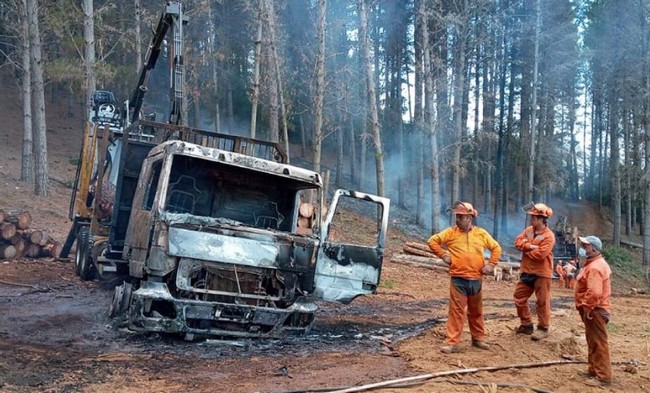A study on the evolution of the state's approach toward victims of violence in the Southern Macrozone was recently published by the Faro UDD Humanities and Social Sciences Hub, which proposes key elements for the development of a comprehensive reparation system.
Titled "Reparation for Victims: A Necessary Priority in the Recommendations of the Presidential Commission for Peace and Understanding," the document analyzes the work of presidential commissions that have addressed the conflict, which over the years overlooked reparation for victims of an issue present since the late 1990s and intensified during the first decade of the 2000s.
BRIEF HISTORICAL EVOLUTION
The study highlights that the formal recognition of the need to compensate victims only occurred in 2016, when the Presidential Advisory Commission for La Araucanía included psychosocial and economic support proposals for the first time.
Later, in 2018, the first program for victims of rural violence was implemented, offering subsidies and assistance through various institutions. However, this program has proven insufficient, as it lacks a structural approach and depends on the political will of each government.
STATEMENTS BY EXPERT JORGE CORDERO
Jorge Cordero, a political scientist and research professor at Faro UDD, explains the study's findings and emphasizes that the state's response to victims has been inadequate.
"The consideration of victims was practically absent until 2016, when the Presidential Advisory Commission for La Araucanía was created during Michelle Bachelet's second government," he states.
In his analysis, Cordero points out that the current program for victims of rural violence, in place since 2018, has significant limitations. "It largely depends on the political will of the moment regarding how many resources are allocated, creating uncertainty for victims and issues of coordination and accountability," he explains.
Additionally, he stresses that financial compensation is insufficient given the magnitude of the damages suffered, leading to persistent dissatisfaction among those affected.
One of the most critical issues mentioned by the researcher is the lack of psychosocial support. "Victims of violence suffer severe trauma, and the absence of adequate support creates lasting distress," he asserts. According to Cordero, many testimonies report that the psychological support promised by the program has not been effectively delivered.
SOLUTIONS TO THE PROBLEM
To advance toward solving this issue, the political scientist emphasizes the importance of pushing for a bill that guarantees a comprehensive reparation system.
"It is essential to have a specialized institution that fosters greater coordination and improves accountability," he argues. He also considers the implementation of a victim registry—categorizing by type of harm and ensuring transparency in accessing benefits—as key.
Regarding material reparation, Cordero states that measures should include monetary compensation, housing reconstruction programs, priority access to preferential loans, and subsidies for economic recovery. "These actions will help mitigate some of the damages victims have suffered at the hands of violent groups," he explains.
Finally, the expert underscores the need to ensure that violence does not recur. "The state must commit to strengthening security in high-risk areas and establishing specific protocols for victim protection," he declares.
FIVE PILLARS TO ESTABLISH A COMPREHENSIVE VICTIM REPARATION SYSTEM
The study argues that any reparation bill must guarantee stability, clarity, and real support for victims. To achieve this, it should include the following pillars:
1. New institutional framework: Create a permanent entity with autonomy and its own resources, focused on reparation and overseen by the Ministry of Justice.
2. National victim registry: Define clear criteria to identify beneficiaries and prevent exclusions or fraud, with periodic updates.
3. Material compensation: Include indemnities, housing reconstruction, entrepreneurial support, tax benefits, and priority in social programs.
4. Psychosocial rehabilitation: Provide specialized care, community support, and symbolic measures such as memorials and official apologies.
5. Guarantees of non-repetition: Strengthen security, peace education, and violence prevention mechanisms.
Source:La Tribuna







Comentarios (0)
No hay comentarios aún. ¡Sé el primero en comentar!
Deja un comentario